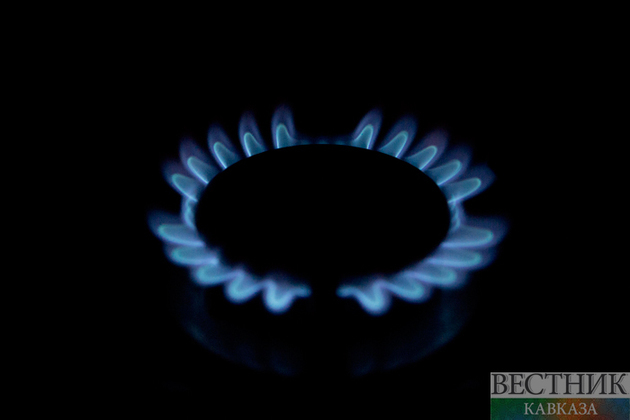Turkey’s pipeline network constitutes the most feasible option for natural gas transmission from the East Mediterranean to Europe, according to Oded Eran, a senior researcher at the Institute for National Security Studies (INSS) at Tel Aviv University and Israel’s former ambassador to Jordan and the European Union, Daily Sabah reports.
“The various conflicts, including the 12-year rift between Turkey and Israel, prevented the exploration of this option and made Israel look for alternatives,” Eran told Anadolu Agency (AA). However, he said the Russian-Ukrainian war and sanctions against Moscow have allowed the Turkish option to resurface and discussions between the presidents of Turkey and Israel could well kickstart the necessary evaluations of this option.
Israeli President Isaac Herzog arrived in Ankara on Wednesday in the first such trip by an Israeli leader in more than a decade. President Recep Tayyip Erdoğan said he believed the “historic” visit will be a “turning point” in long-strained relations, and that Ankara was ready for cooperation in the energy sector. While acknowledging that the combined available gas quantities from Israel and Egypt are not in themselves sufficient to replace Russia as a supplier to Europe, Eran said they could help mitigate any abrupt shortages.
Herzog’s visit is seen as a step towards moving from a period of strained ties to improved bilateral relations. Erdoğan stressed that “our common goal is to revitalize political dialogue between our countries based on common interests and respect for mutual sensitivities.” He underlined the importance of energy security in the wake of the recent regional developments and called for cooperation in energy projects. “I think this is an opportunity to revive the cooperation on the topic of energy that began before,” he added, referring to the activities of Turkey’s drilling and seismic ships in the Mediterranean and the Black Sea.
Israel has held previous talks on gas exports to Turkey, which did not come to fruition. Eran questioned the political and economic feasibility of a joint gas pipeline project between Turkey and Israel, given the risks in the politically charged region. “The various commercial players involved will have to be ensured against political risks in a region fraught with several conflicts and they will have to be guaranteed that there will be a timely return on their investments. These are complicated issues and there are no easy answers to several political hurdles,” he warned.
But he was more optimistic about Turkey’s role as a link between the East Mediterranean and North Africa, which he deemed the best regional options for the development of solar energy. He also encouraged cooperation between Turkey and the East Mediterranean gas-producing countries to promote blue hydrogen as an energy bridging resource, which would be beneficial in the 30 to 40-year window from now to a full transition to renewables. Blue hydrogen is derived from natural gas through the process of steam methane reforming (SMR).
Obstacles can be overcome
Michael Tanchum, a nonresident fellow in the Economics and Energy Program at the Washington-based Middle East Institute, also echoed the commercial viability of transporting Israeli gas to Turkey for domestic use and continuing the well-established export trade to Europe. Erdoğan has said previously the two countries could work together to carry Israeli natural gas to Europe, reviving an idea first discussed more than 20 years ago.
Plans for a subsea pipeline that would carry Israeli gas from the Eastern Mediterranean to Europe via Greek Cyprus and Greece to Europe, excluding Turkey, have stalled after the United States expressed misgivings in January, citing concerns over its economic viability and environmental costs.
Erdoğan had said the U.S. pulled its support because the project makes no economic sense, reiterating his view that such a project “cannot work without Turkey.” Tanchum expressed confidence that political obstacles could be overcome to build a new gas pipeline. “Technical issues related to building a subsea pipeline are also likely manageable. With events in Ukraine focusing a sense of urgency on natural gas, combined with Turkey’s recent rapprochement efforts with Israel and other Middle Eastern actors, the previous political obstacles could be resolved,” he said.
Tanchum recommended that the transportation of green hydrogen, which is derived from renewable energy sources without carbon dioxide as a by-product and considered the greenest option, could be realized through an Israel-Turkey pipeline. He also suggested that renewable energy generated in Israel and neighboring countries, like Jordan, could be sent to Turkey. “In this manner, the pipeline could also be the start of developing wider cooperation in the Eastern Mediterranean for the regional-level approach to the development of renewable energy resources.”






